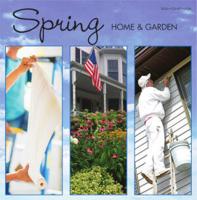Top News
WAUKESHA — The primary election for the redrawn 99th Assembly District is nearly four months away, but there’s been chatter on social media related to the challenge Hartland Village President Jeff Pfannerstill is mounting against current state Rep. Barbara Dittrich for the seat.
CAMPBELLSPORT — Former State Rep. Timothy Ramthun announced on Wednesday that he will be running in the State Senate District 20 election, whi…
MENOMONEE FALLS — Wanaki Golf Course wants to expand its year-round golfing activities with six golf simulator bays in a 6,653-square-foot bui…
TOWN OF POLK — A 26-year-old Milwaukee man was arrested Wednesday afternoon for OWI first offense after rolling over a fully loaded semi-tract…
WAUKESHA — In 2021 people gave support, time, money, and kindness to help those impacted by the Christmas parade tragedy. Now over two years l…
WEST BEND — West Bend Mayor Joel Ongert signed a proclamation honoring local public safety dispatchers at the Common Council meeting Monday ev…
WAUKESHA — Waukesha County District Attorney Sue Opper announced Friday that she will not be seeking criminal charges against state Rep. Janel…
WEST BEND — Volunteer Center of Washington County held their annual Champions of Change award ceremony on Thursday evening, honoring different…
HARTFORD — The Hartford City Band will be holding their annual free spring concert at the Schauer Arts Center, 147 N. Rural St., at 2:30 p.m. …
NEWBURG — The village will be participating in the DEA National Medication Take Back Day in conjunction with their E-cycling and bulk recyclin…
SLINGER — The Friends of the Slinger Dog Park announced that they have recently received a $1,500 donation for the proposed dog park within Br…
TOWN OF WEST BEND — Cedar Community announced on Thursday that they were named one of Senior Care’s Best Places to Work by WeCare Connect.WeCa…
MUSKEGO — Kaelyn Hogan wouldn’t go there — not yet anyways.But come June, if you ask New Berlin Eisenhower’s softball coach if this is the best Lions’ team of her eight-year tenure, she seems likely to answer with a resounding yes.
No Mia Buske, no problem. West Bend West, even without the services of the South Dakota State recruit, was still able to muster plenty of offense Thursday afternoon. The Spartans used a six-run third before taking a 10-0 North Shore Conference softball win over cross-hall rival West Bend East.
OCONOMOWOC — The conditions were less than ideal for baseball when Oconomowoc hosted Classic 8 Conference rival Mukwonago on Thursday night. The rain started just before the game as a drizzle, but by the second inning, the heavens opened. The game finished 16-4 in five innings in favor of th…

• The Slinger Village-Wide Rummage Sale is on Saturday, May 11. |
In the scrublands of western Nevada, Tesla co-founder JB Straubel stood on a bluff overlooking several acres of neatly stacked packs of used-u…
While malaise sets in across much of the electric vehicle market, there’s a corner that’s still going strong, where buyers like Chris Russo sh…
NEW YORK — The worst week for big technology stocks since the COVID crash in 2020 dragged Wall Street across the finish line of another losing…
Biden administration restricts oil and gas leasing in 13 million acres of Alaska's petroleum reserve
JUNEAU, Alaska — The Biden administration said Friday it will restrict new oil and gas leasing on 13 million acres (5.3 million hectares) of a…
MADISON, Wis. — The Republican candidate in Wisconsin's closely watched U.S. Senate race emp…
MADISON, Wis. — Republican legislators have filed a second lawsuit challenging Democratic Go…
MADISON, Wis. — Vice President Kamala Harris plans to return to Wisconsin next week for her …
MADISON, Wis. — A Democrat who represented southeast Wisconsin in Congress in the 1990s befo…
KARACHI, Pakistan — A suicide bomber targeted a van carrying Japanese nationals in Pakistan'…
JERUSALEM — Israel and Iran on Friday both played down an apparent Israeli airstrike near a …
NEW YORK — A full jury of 12 people and six alternates was seated Friday in Donald Trump’s h…
Biden administration restricts oil and gas leasing in 13 million acres of Alaska's petroleum reserve
JUNEAU, Alaska — The Biden administration said Friday it will restrict new oil and gas leasi…
WASHINGTON — With rare bipartisan momentum, the House pushed ahead Friday on a foreign aid p…
Trending Now
-
WIAA task force advances changes to realignment plans
-
16-year-old arrested for OWI after allegedly leading Waukesha police on chase
-
Perfect for pickleball: Vortex Pickleball Club to open in remaining Boston Store space in September
-
Waukesha man remembered for his generosity and love of theater
-
Waukesha resident killed in Burlington accident




































































